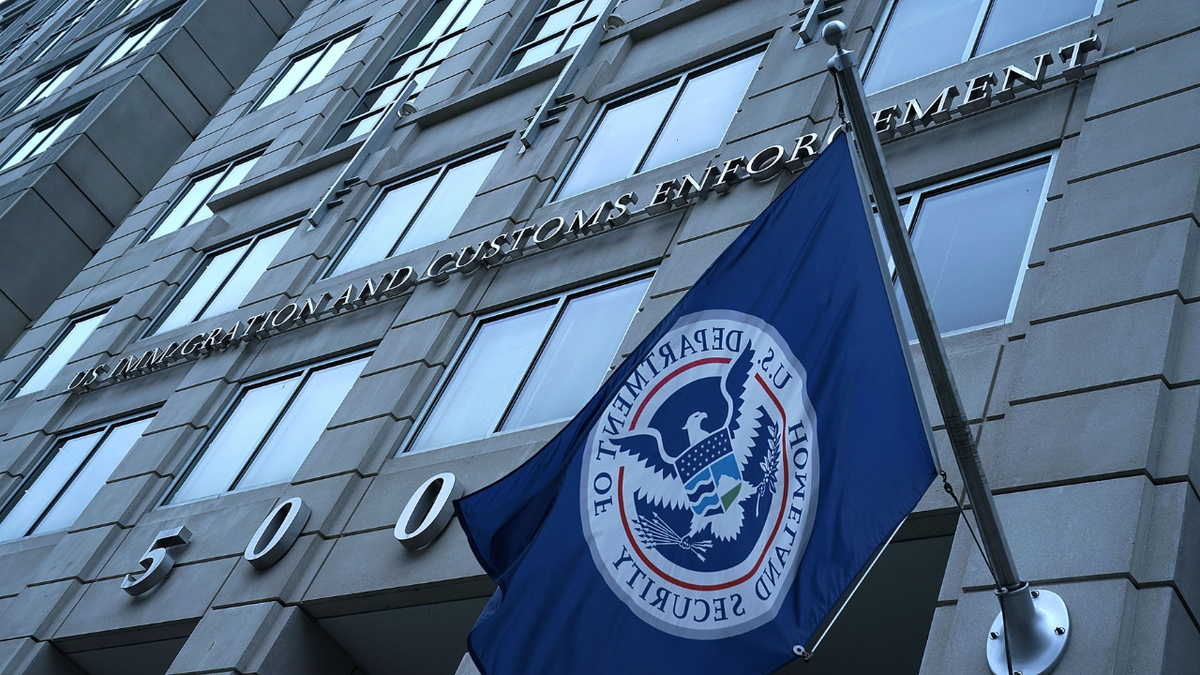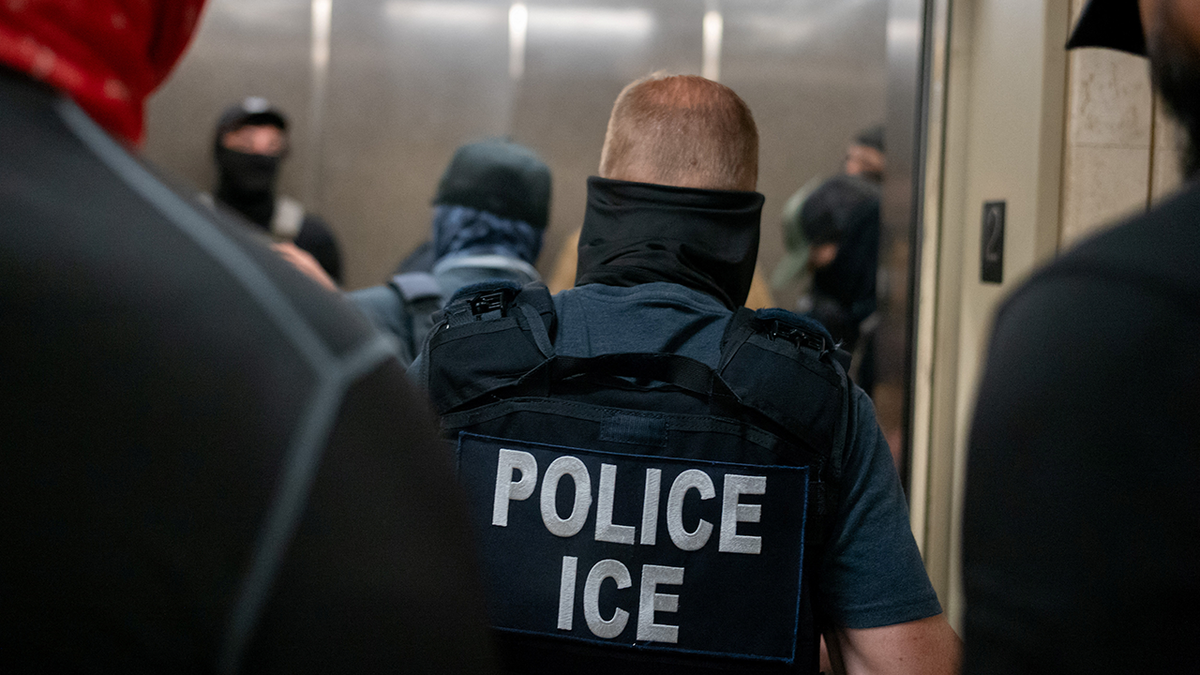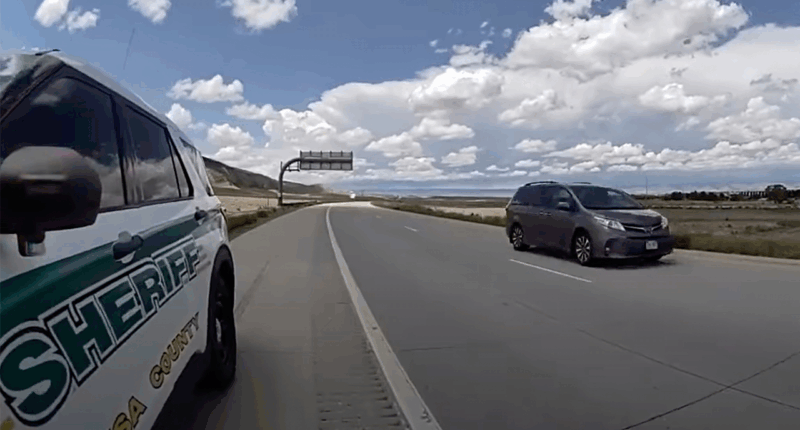Share this @internewscast.com
Two Colorado deputies have faced disciplinary actions for providing information to federal immigration agencies, violating a state law imposed recently.
According to The Associated Press, Colorado Attorney General Phil Weiser filed a lawsuit against Mesa County Sheriff’s Deputy Alexander Zwinck last week after it was revealed that he collaborated with federal immigration agents on a drug task force, resulting in the arrest of a Brazilian college student for visa issues.
Mesa County Sheriff Todd Rowell addressed the situation on Thursday, explaining that Caroline Dias-Goncalves, a 19-year-old nursing student, was stopped by Zwinck on June 5 for allegedly driving too closely to a semi-truck. Although Dias-Goncalves was let go with just a warning after about 20 minutes, she was soon detained by federal immigration agents who arrested her.
Rowell mentioned that Zwinck had shared the student’s location and vehicle description in a group chat that included ICE agents. Consequently, she was arrested by ICE and remained in detention for 15 days before being released on bond.

Two Colorado deputies have been disciplined for helping federal immigration agents make arrests. (Alex Wong/Getty Images)
Zwinck and another deputy, Olson, reportedly told authorities they thought they were adhering to established protocols. However, an internal review revealed they had received and opened two emails outlining restrictions on cooperating with immigration authorities.
A specific email sent on Jan. 30, 2025, clearly instructed law enforcement not to engage with Homeland Security Investigations or ICE in cases where someone is suspected of being in the country without citizenship, even if they are being apprehended for a violent offense.
Zwinck said at his disciplinary hearing that he was not aware of the new law nor was he interested in contributing to immigration enforcement. Olson, a longtime deputy, testified that sending information to federal agents during traffic stops was “standard practice.”
“It was routine for ICE to show up on the back end of a traffic stop to do their thing,” Olson said. “I truly thought what we were doing was condoned by our supervision and lawful.”
Rowell said drug task force members from other law enforcement agencies, including the Colorado State Patrol, also shared information with immigration agents on the Signal chat, although the state patrol denied the accusation.
The sheriff criticized Weiser for suing Zwinck before an internal investigation was finished and called on the attorney general to drop the lawsuit.

A new state law prohibits local government employees, including law enforcement, from sharing identifying information about people with federal immigration officials. (Reuters)
“As it stands, the lawsuit filed by the Attorney General’s Office sends a demoralizing message to law enforcement officers across Colorado — that the law may be wielded selectively and publicly for maximum political effect rather than applied fairly and consistently,” he said.
Weiser said last week that he was probing whether other officers in the group chat violated state law.
A spokesperson for Weiser said he was presented with evidence of a “blatant violation of state law” and had to act.
“The attorney general has a duty to enforce state laws and protect Coloradans, and he’ll continue to do so,” spokesperson Lawrence Pacheco said.

















